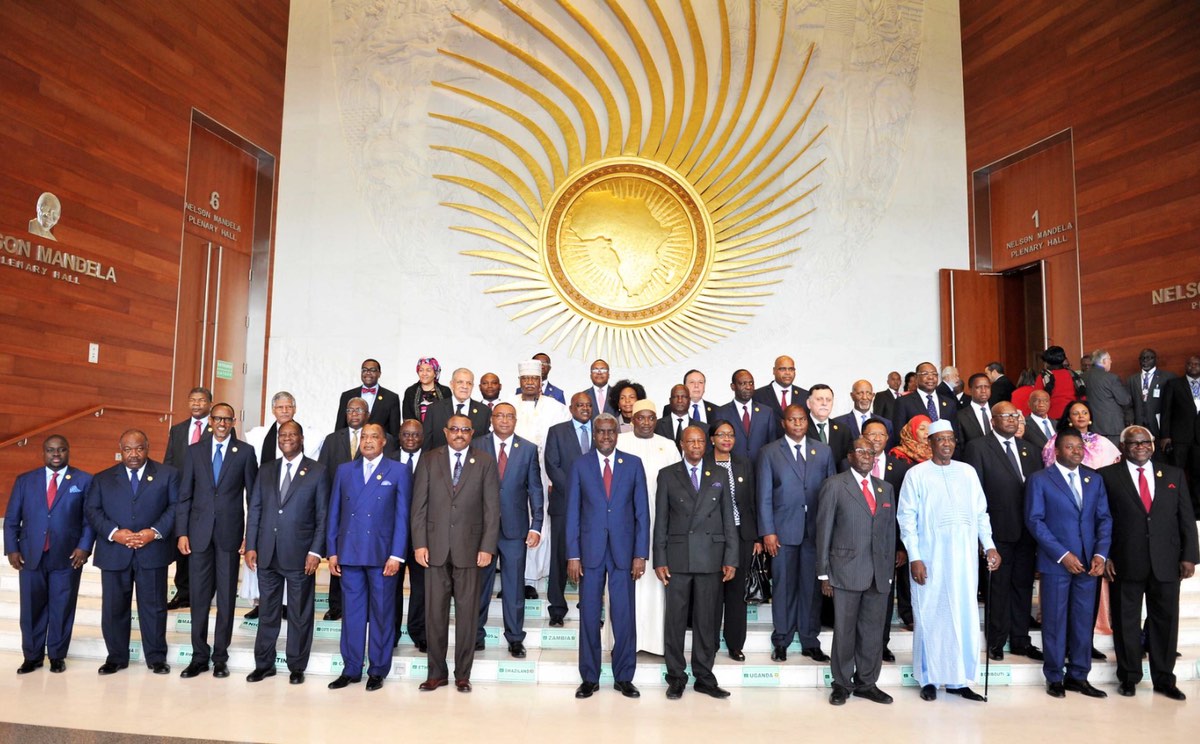The African Union (AU) took a progressive decision to leave the State of Israel as an observer at the continental body. This follows failed attempts by member states such as South Africa and Algeria to have Israel removed as an observer, a status that was granted last year.
Israel is already trading with more than 40 African states, more than 75 percent of all the countries in Africa. Why then is it not a good idea to have Israel as an observer? It does not make sense that those countries claiming to loathe Israel have exchanged embassies and are trading together and have their flags flying high in Tel Aviv.
It is becoming evident every day that South Africa, under the ANC, is growingly increasing obsessive about Israel for no good reason. This has been pronounced ever since the ANC adopted a resolution in its last elective conference to downgrade Pretoria’s embassy in Tel Aviv. It is crystal clear that they had not adequately engaged each other in the commission during the conference. The decision to downgrade Israel was taken without democratic deliberations or debate before resolving this matter.
The ANC has not been consistent on the Palestinian-Israel issue. The double standard is shown by the fact that Pretoria has a longstanding trade relationship with Israel. President Cyril Ramaphosa recently welcomed various new ambassadors including that from Israel, Eliav Belotsecovsky.
The presence and inclusion of Israel as an observer in the AU provides a golden opportunity to help resolve the complicated conflict between Israel and Palestine. The approach of the AU also shows that there is a need to pursue a two-state-solution approach at all levels by not showing any favouritism over the other.
This is not the first time that the AU has had Israel as an observer. It was an observer until 2002 when the continental organization was relaunched in Durban. The Jewish State has been campaigning for a comeback ever since until they were successful in July 2021.
The accusation of Israel as an apartheid state is primarily peddled by South Africa, and this fixated stance by Pretoria’s government is reckless, baseless, and impulsive. South Africa is respected around the world to advance peace through dialogue, but when it comes to Israel-Palestine, the current crop of leadership has taken an opposing methodology where they choose sides and thereby fuel conflict rather than helping resolve it.
South Africa never campaigned against another member state of the AU when the people of Zimbabwe were at the receiving end of human rights violations by the authoritarian regime led by the ZANU-PF. The violent political situation in Harare affected the South African government as we continue to experience Zimbabweans migrating to South Africa in search of both greener pastures and a peaceful destination where their lives are not in constant danger. In the Kingdom of Eswatini, there has been an attempt to fight back against government by citizens calling for the establishment of a democratic leadership. However, the ANC-led government hasn’t lent an ear; they are playing far from the scene to make sure that they do not get involved.
The inclusion of Israel as an observer also presents an opportunity for African countries in the form of the AU to help the Palestinians to establish or improve their own economy, infrastructure, education, and training as well as many other important areas of the economy. Being anti-Israel does not help the people of Palestine, who are crying for help as they do not have proper leadership.
It is crystal clear that under the current leadership crop of the ANC, South Africa will miss the opportunity to play the peace ambassador role in the world it had branded for itself in the past, especially after 1994.
The energy used to delegitimize Israel is defocused; we should rather be focusing on resolving our own problems such as rising unemployment, the collapsing system of education, crime and corruption, poverty, and many other problems which hinder the progress of the country.
Israel has come to be known as the tech hub. African countries are benefitting from the technology of Israel, and a stable relationship with Israel will benefit both countries, especially in using that technology to address issues of hunger, corruption, unemployment, water shortage, diseases, and viruses as well as many other problems faced by many African countries.
Besides the more than 44 African states which have relationships with it, Israel has been reaching out to Arab nations in the Middle East region as well as in Africa, and many of them have come to normalize their relations with Israel. So why is South Africa hellbent on sabotaging potential peace efforts?

